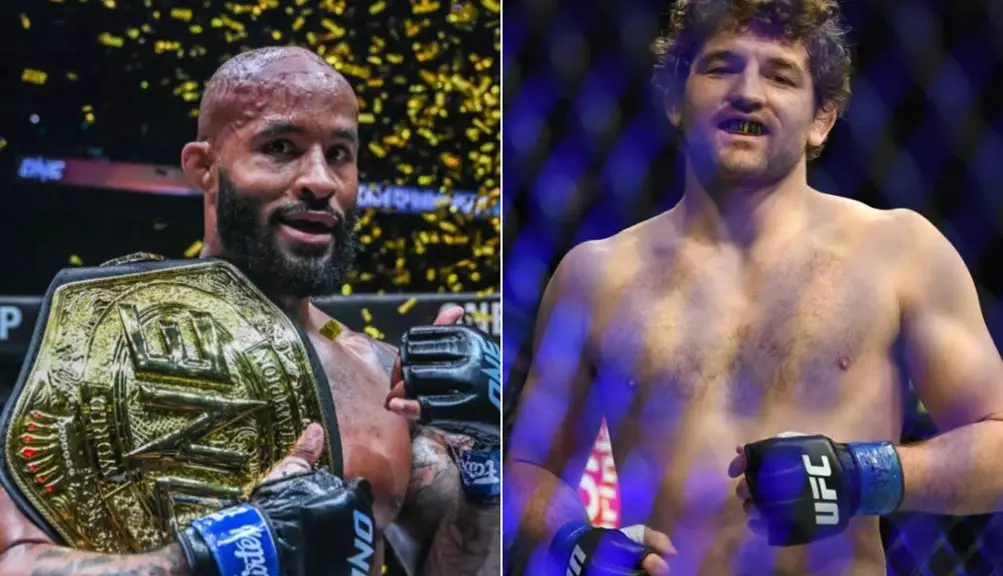In the ever-evolving landscape of mixed martial arts (MMA), trades aren’t a commonplace occurrence, making the 2018 swap between the Ultimate Fighting Championship (UFC) and ONE Championship a noteworthy exception. The trade saw former UFC flyweight champion Demetrious “Mighty Mouse” Johnson switch organizations with former ONE Championship title holder Ben Askren. This exchange not only ignited discussions about the implications for fighter careers but also raised questions about the health of both organizations. What transpired has led to a layered analysis of whether this trade was a win-win or a competitive blunder for either party.
For Demetrious Johnson, moving to ONE Championship was not just about changing promotion; it represented the culmination of a career rich with accomplishments. Upon joining the Singapore-based organization, he immediately became a central figure, ultimately capturing the ONE flyweight title. His journey was marked by a competitive spirit that saw him face Adriano Moraes three times, with Johnson claiming two victories. This feat underscored Johnson’s remarkable talent and adaptability to a new fighting environment, showcasing how a trade could rejuvenate a fighter’s career.
Moreover, Johnson’s financial compensation benefitted significantly from the switch, enabling him to command higher purses while competing globally. This mutually beneficial situation reinforced the argument that the trade fulfilled its intended purpose—rewarding athletes for their efforts in a sport where contracts dictate much of their financial success.
Conversely, Ben Askren’s transition to the UFC generated a wave of excitement, albeit marred by some controversy. His arrival was marked by an explosive debut against former champion Robbie Lawler, which ended in a victory that reaffirmed his wrestling credentials. However, Askren’s journey became notably turbulent after suffering the quickest knockout in UFC history at the hands of Jorge Masvidal. This event turned Askren from simply a new fighter in the UFC into a larger-than-life personality, spurring interest in his bouts far beyond his fighting prowess.
Askren’s unique ability to generate buzz through witty trash talk made him a valuable asset for the UFC, contributing to heightened engagement with fans. Despite his subsequent losses to Masvidal and Demian Maia, his early contributions elevated his profile and that of the promotion he temporarily represented.
Reflecting on the outcomes of both fighters, the consensus between Johnson and Askren appears to be that both organizations derived substantial benefits from the trade. Johnson believes that not only did he thrive at ONE Championship, but Askren’s participation in the UFC revitalized interest in fighters like Jorge Masvidal, contributing to the rise of the welterweight division. Askren hinted that while he was close to retiring, the trade allowed him to re-engage and provide a stint that was beneficial both personally and for the promotion.
The ramifications were also felt on a broader scale, as the shift allowed ONE Championship to demonstrate its competitiveness against the UFC and expand its global influence. Johnson’s presence helped legitimize the quality of opponents in ONE, showcasing that elite talent exists outside the UFC’s octagon. Simultaneously, his loss to Moraes reaffirmed the legitimacy of ONE Championship fighters, challenging the narrative that the UFC monopolizes highest-tier MMA talent.
The verdict on whether the 2018 trade was advantageous for both parties may ultimately rest on subjective interpretation. While both fighters experienced a resurgence in their careers—Johnson crowned a titleholder and Askren becoming a polarizing figure—the implications for the wider MMA landscape are harder to quantify. Time has shown that effective promotions are built on the narratives created around their athletes, and in this regard, both promotions could be seen as having won.
As the market for MMA continues to evolve, trades like the one between the UFC and ONE Championship could serve as a foundation for larger, more intricate interactions between promotions in the future. Both Johnson and Askren’s careers are testaments to the dynamic nature of the sport, ensuring that while tradeoffs may come with risks, they also offer opportunities for innovation and spectacle in the world of MMA.

